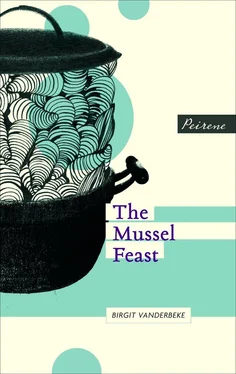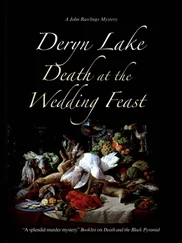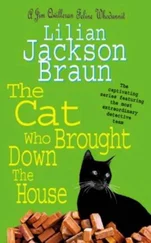All that time we hadn’t looked at the clock. But when the telephone rang, the three of us looked at the clock as if by command; we felt panic and in our panic could think of nothing else, and so the first thing we did was to look at the clock, and it read a quarter to ten. Our hearts stopped, for the telephone scythed into our wickedness like God’s retribution; it was the sort of telephone ring which made us think, oh, the Day of Judgement begins at a quarter to ten, we didn’t know that. The ringing heralded the end of the world, at precisely the same time that everything had fallen apart for my mother, because she’d confessed that, like Medea, she’d wanted to poison us all, a thought she’d at least not had to lose much sleep over, because she never imagined she’d ever betray her fantasy, and the telephone would have to ring at that very moment, we thought. We were petrified, each of us gazed at the others’ petrified faces, each one of us saw the others’ bulging eyes, our faces were ashen, and once we were aware that the Day of Judgement had begun at a quarter to ten, we were aware of nothing else; we just continued staring at each other. With the telephone refusing to stop ringing I looked down at my hands and noticed that I’d chewed my nails over the fingertips to the raw skin; my chewed fingernails had red, bloody edges; when I couldn’t look at the red edges any more I balled my chewed fingernails inside my fist and gazed over at my mother. My mother hadn’t noticed the nail-chewing that evening, her fingernails were painted a mother-of-pearl pink and looked very pretty and groomed; she had lacquered them that day. When my father was away on business my mother didn’t have painted nails; the paint flakes off when you do the housework, she said, and she found it a bore to paint her nails every other day. Besides, my mother didn’t think you needed painted nails to look beautiful, even though my father spoke highly of his secretary’s fingernails, painted ox-blood red, he raved about them; take a leaf out of her book, he told my mother; it’s easy for you to say, my mother replied, when your secretary comes home in the evening she’s got all the time in the world to look after herself, because your secretary is young, single and childless, and so has time to groom herself and dye her hair blonde; but then my mother did paint her nails, she painted them mother-of-pearl pink rather than ox-blood red, but hers were hands that were worn from work, and if she’d chosen ox-blood red it would have been more noticeable that my mother’s hands were worn from work. I looked at my brother while the telephone continued ringing, my brother noticed me looking at his hands and at once balled them into a fist so that I couldn’t see the bloody edges on all ten fingers. Now I broke into a sweat; I no longer knew where to look. Amidst the ringing of the Day of Judgement my brother said hoarsely, maybe it’s someone else, but no one felt the need to answer, it was just an attempt; the telephone went on ringing. And then Mum stood up. I thought, she’s going to fall over; swaying, she took a few steps towards the telephone; she swayed so slowly towards the telephone that I thought, maybe she wants to give it one last chance to stop before she gets there; nobody counted but it must have rung twenty times, and none of us believed that the ringing would ever stop; for us, time after had ceased to exist, all the time in the world had shrivelled up into this ringing, none of us thought that in a quarter of an hour it would be ten o’clock, there could be no ten o’clock, time would be no more in a quarter of an hour, only this ringing, after which there’d be nothing, that much was certain. My mother walked to the living-room door with this swaying, wobbling movement, but didn’t go in; she stopped at the door and held on to the frame, but the telephone didn’t do her the favour of stopping. She peered into the room from the door. We couldn’t see what Mum could see, or whether she’d closed her eyes; all we saw was her back in the door frame, which she held on to for a time; I’m sure the time was no longer than a second, but it was a long time, too; I felt nothing except time, which was no longer laid out before us, but had shrivelled up into this ringing of the telephone. Then my mother turned round and looked at us, not with her eyes agog as before, but calmly and thoughtfully, and then said, very clearly, on the other hand; the telephone went on ringing and my mother came back; all of a sudden she was walking fairly upright again, with just the odd sway. When she reached the table she repeated, on the other hand, louder and with determination, glaring in sheer disgust at the mussels in their bowl. She took the bowl, which had sat in front of us all evening with those vile mussels; she went into the kitchen with the mussels, and all we could hear were the shells rattling, we couldn’t hear the telephone, only the shells rattling as my mother emptied the mussels into the dustbin, then she came back in and said to my brother, would you mind taking the rubbish out?
About the Author and the Translator
AUTHOR
Birgit Vanderbeke, born in 1956, is one of Germany’s most successful literary authors. She has written twelve novels. The Mussel Feast was her first publication and won the most prestigious German-language literature award, the Ingeborg Bachmann Prize. The book was published in 1990 and has not been out of print since. It has been translated into all major European languages, including French, Spanish and Italian.
TRANSLATOR
Jamie Bulloch has worked as a professional translator from German since 2001. His works include books by Paulus Hochgatterer and Alissa Walser. Jamie has also translated Portrait of the Mother as a Young Woman by FC Delius (Peirene No. 3) and Sea of Ink by Richard Weihe (Peirene No. 9).












